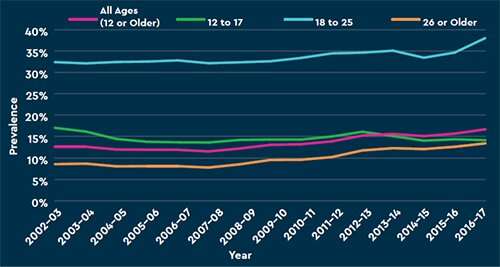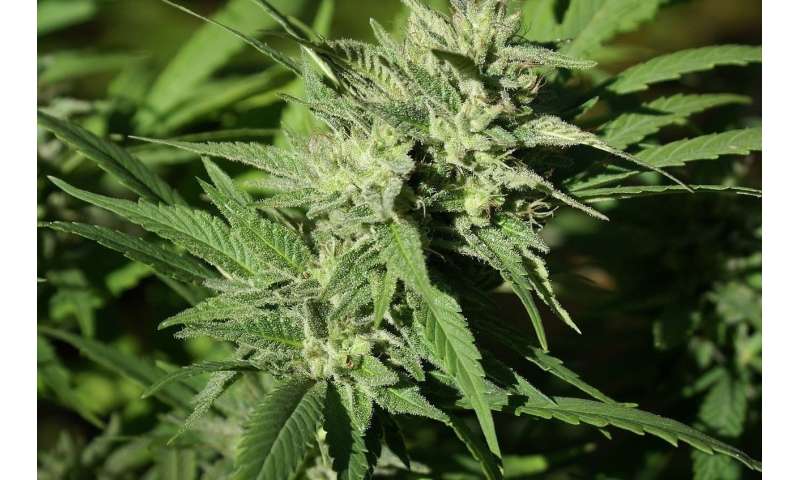Home » Health News »
Cannabis in Michigan: New report documents trends before recreational legalization

Nearly twelve years ago, Michigan voters approved the use of medical cannabis by residents with certain health conditions. A year and a half ago, they voted to approve its use by all adults, for any reason.
What happened between those two dates is the focus of a comprehensive new report just issued by the University of Michigan Injury Prevention Center.
The report documents everything from who’s using cannabis in the state for medical and recreational purposes, to downstream effects including motor vehicle crashes, emergency department visits and criminal justice cases. It aims to provide a baseline for future studies on the impact of state-level recreational cannabis legalization that occurred in late 2018, and to inform future policies and public health messaging.
The report, available at http://michmed.org/cannabisreport, includes a wide range of findings compiled from original research and official sources.
Some key observations:
- One in nine Michiganders report using cannabis at least once in the last month, a percentage that increased 60% over a 14-year period
- About three percent of all state residents hold a medical cannabis card, nearly all of them for chronic pain
- Medical cannabis led to net revenue for the state of $5 million to $7 million a year
- One in 30 pregnant Michigan women reported using cannabis; the percentages were higher among those with the lowest incomes and education levels, potentially reflecting disparities
- The percentage of fatal motor vehicle crashes in Michigan that involve cannabis is increasing, even as the total rate of fatal crashes decreases. Among drivers tested for cannabis after such crashes, the percent that were positive more than tripled between 2004 and 2017, when 23.4% of tested drivers in fatal crashes had cannabis in their bloodstream at the time of the crash.
- 1.5% of Michiganders experience symptoms of cannabis use disorder
- Emergency department visits and hospitalizations related to cannabis poisoning increased recently, with older teens and young adults accounting for a disproportionate share of cases
- Cannabis-related misdemeanors and felonies accounted for nearly 4% of convictions in the state’s criminal justice system, about half of which occurred at the same time as other felony convictions.

To compile the report, a team headed by Injury Prevention Center faculty Kipling Bohnert, Ph.D. and Erin Bonar, Ph.D., worked with two state agencies—the Michigan Department of Health and Human Services and the Michigan Department of Licensing and Regulatory Affairs—and the federal Michigan High Intensity Drug Trafficking Area coalition. The report was funded by the IPC’s core funding from the Centers for Disease Control and Prevention.
The researchers also note key areas where more data needs to be generated and shared, including broader biological testing for cannabis among drivers in motor vehicle crashes, additional study of vaping of substances derived from cannabis, workplace issues, societal costs and access to cannabis use disorder treatment.
Source: Read Full Article



